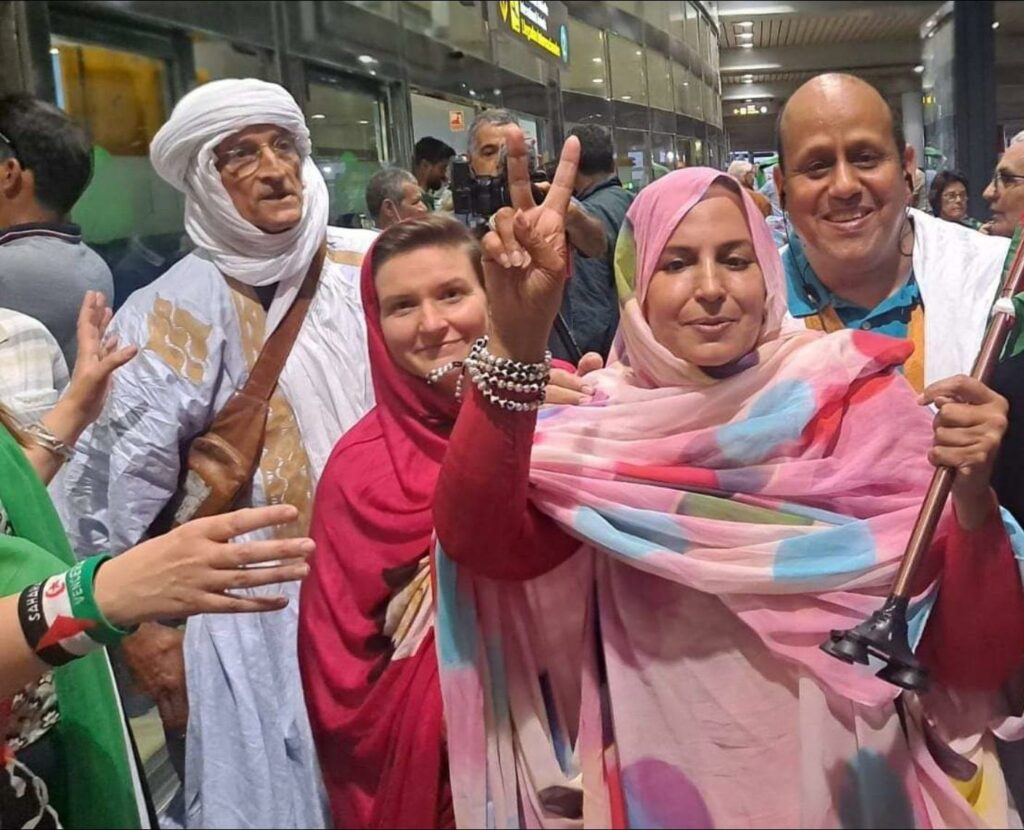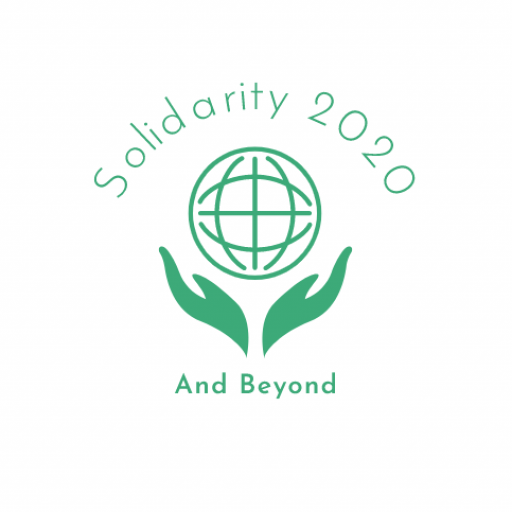Supporting, empowering, Mobilizing
Special Projects
Our Recent Projects
S2020B Staff have been involved in a recent rapid response Unarmed Civilian Accompaniment project with volunteers based in the US who broke the siege and abuse of a key human rights defender, Sultana Khaya, and her family members, who had been tortured, attacked, and kept under house siege for 480 days before the volunteers arrived to stay in her house. They have now accompanied her to Spain to receive badly needed medical attention.

Human rights organizations have recorded widespread detentions, the torture of dissidents, and violent suppression of peaceful protests by Moroccan forces in Western Sahara. In addition to the oppression of peaceful protestors, since November 2020, Moroccan occupation forces have been forcibly confining the Khaya Sisters to their home and the family is facing many forms of abuse, including home invasions, sexual violence and injections of unknown substances. We cannot allow this abuse and violence to continue. We are called to expose these human rights injustices and join together to build peace in Western Sahara. At the invitation of the Khaya family in Boujdour, Western Sahara, US-based volunteers have arrived at their home to protect them from human rights abuses and interrupted the almost 500-day siege of the house imposed by Moroccan occupation forces.
Follow important updates on the siege HERE
Supported by the Human Rights Action Center (HRAC) and a network of other human rights groups, the international unarmed civilian protection (UCP) volunteers, Ruth McDonough, Adrienne Kinne, and others, are currently guests in the Khaya family home.
Since November 2020, the Khaya Sisters have been forcibly confined to their home and the family has faced many forms of abuse, including home invasions, sexual violence and injections of unknown substances. The Khaya sisters have been raped by Moroccan security forces in front of their 84-year-old mother. Furthermore, their water has been poisoned, furniture and property destroyed, and electricity cut-off.
Referring to her experience, Sultana Khaya shared, “I am not the first Saharawi woman to be raped by the occupiers. I am simply the first woman to speak publicly about it. I have to expose the reality of the occupation. And I need to pave the way for the next generation of Saharawi women.”
Sultana Khaya is a Saharawi human rights defender whose work focuses on promoting the right of self-determination for the Saharawi people and ending violence against Saharawi women, through active participation in nonviolent efforts and demonstrations. She serves as the president of the Saharawi League for the Defense of Human Rights and the Protection of Western Sahara’s Natural Resources, and is a member of the Saharawi Commission against the Moroccan occupation (ISACOM). She is a nominee for the Sakharov Prize and winner of the Esther Garcia Award. As an outspoken activist, she has been targeted by the occupying Moroccan forces while engaged in peaceful protests, enduring abductions, beatings, and having one eye gouged out.
According to Ruth McDonough, “Violence against women must stop everywhere. I am here to support Saharawi women who are demanding their rights.”
Jack Healey, founder of HRAC and former Executive Director of Amnesty International, USA, said, “I insist that the U.S. government stand up for human rights in Western Sahara.”
The HRAC visitors call for an end to the rapes, freedom of movement for the Khaya family and all visitors, and an independent international investigation of these human rights abuses. HRAC supports a more detailed list of demands made by the Khaya sisters which include removal of forces and barricades around their house and neighborhood and the remediation of their poisoned water reservoir.
Grounded in international law, Unarmed Civilian Protection is a nonpartisan strategy that revolves around the use of nonviolent methods by civilians to protect other civilians under threat. Such protection is provided on invitation from local actors and supports local agency and infrastructures for peace.
Human Rights Watch, Amnesty International, and other highly respected investigative groups have documented widespread detentions, the torture of dissidents, and violent suppression of peaceful protests by Moroccan forces in Western Sahara.
On 1 July 2021, the UN Special Rapporteur on the situation of human rights defenders, Mary Lawlor, condemned the reprisals against Sultana Khaya and expressed “particular concern about the apparent use of violence and the threat of violence to prevent and obstruct women human rights defenders in their peaceful human rights activities.”
Morocco invaded the Western Sahara in 1975, and has occupied it since then. The Western Sahara has UN status as the world’s last major non-self-governing territory. In 1991, the United Nations promised to hold a referendum for self-determination for the people of Western Sahara. To this day, the referendum has not transpired.
Click HERE for the List of Demands.
Click HERE for the Social Media toolkit.
Click HERE for our Press Packet.
Click HERE to Sign our Petition.
TAKE ACTION: Make some urgent phone calls!
Support HRAC in their Demands of the Moroccan Forces
- We call for and end to the rapes.
- We call for the freedom of movement for the Khaya Family and all visitors.
- We call for an independent international investigation of these human rights abuses.
- Insist that our Break-the-Siege US and International tourists not be attacked and permitted freedom of movement.
Please pick up your phone and speak to someone:
US Citizens:
Moroccan Desk, Joseph Debernardo +1 202 647 1724
Morocco Citizens and anyone anywhere:
Prime Minister of Morocco:
Aziz Akhannouch
+212 537716168
Europeans and Global Citizens: Please contact your foreign ministry.
